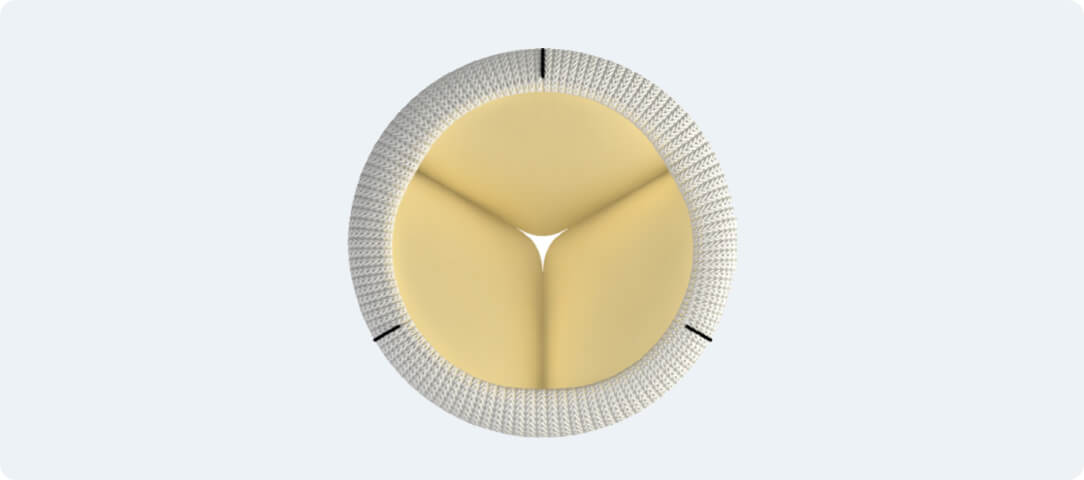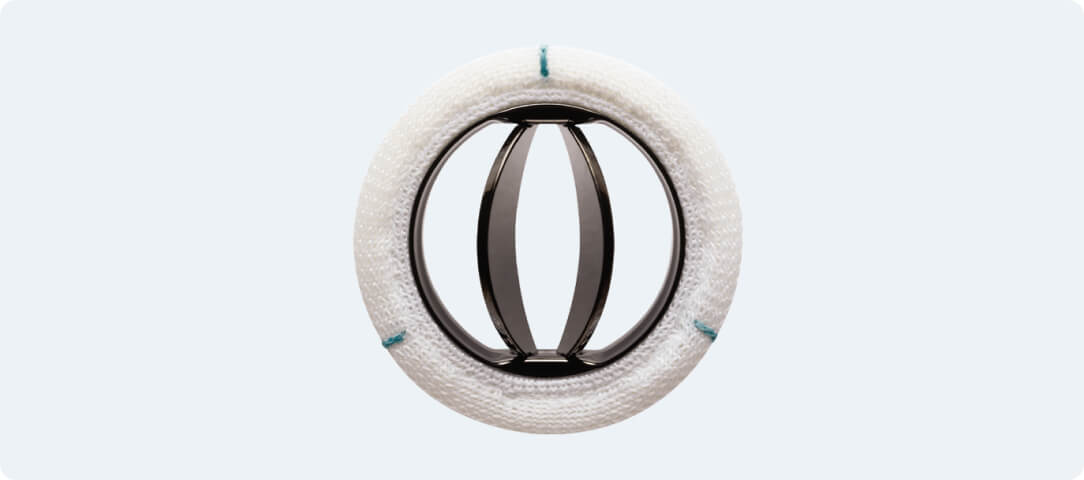
Tissue valve
Tissue valves (also called bioprosthetic valves) are made with animal tissue such as bovine (cow) tissue or porcine (pig) tissue.

Prosthetic (or artificial) replacement valves are made from a variety of materials. There are two main categories of replacement heart valves: tissue and mechanical.

Tissue valves (also called bioprosthetic valves) are made with animal tissue such as bovine (cow) tissue or porcine (pig) tissue.

Mechanical valves are made from synthetic material, usually carbon.


Choosing which valve is right for you should be a shared decision made by you and your doctor.
Communicate with your doctor so you can be aware of the considerations that come with your valve choice and how they might affect your post-surgery lifestyle.
Today, there are several treatment options for valvular heart disease (VHD), including medications, heart valve repair, or valve replacement. If you end up requiring surgery, you and your doctor may consider the repair or replacement of your damaged heart valve.
| Tissue valves | Mechanical valves | |
| Long-term blood thinner required | No | Yes Daily blood thinner medication and regular blood tests for the rest of your life |
| Valve longevity | 10 to over 20 years, depending on type of valve, patient characteristics, and other factors RESILIA tissue has been shown in animal studies1 to have less calcium build-up, potentially allowing the valve to last longer* | Over 20 years, in general |
| Lifestyle and dietary considerations | Yes May need to reduce calcium intake | Yes Limits active lifestyle and foods high in vitamin K (such as leafy greens) from diet |
| Noticeable sounds from valve | No | Yes Clicking sound as valve opens and closes |
| Pregnancy considerations | No No known pregnancy complication risk | Yes High pregnancy complication risks due to use of blood thinners |
*RESILIA tissue has not been studied for long term results in patients.
Surgical aortic valve replacement:
Choosing the right valve for you



We are committed to providing the highest levels of customer service to help our patients improve their quality of life. For any questions, please contact the Edwards Patient Support Center.
Give us a call
Send us an email
Indications: For use in replacement of native or prosthetic aortic heart valves.
Contraindications (Who should not receive): There are no known contraindications with the use of the INSPIRIS RESILIA aortic valve.
Complications and Side Effects: The risks with the INSPIRIS RESILIA aortic valve are similar to risks with other heart valves, and include the following:
These could lead to the need for reoperation to replace the valve, permanent disability, or death.
This is not a complete list of all the risks that can occur with heart valve surgery. Your doctor can give you more information about these and other risks. This information is not a substitute for talking with your doctor.
Indications: For use in replacement of native or prosthetic mitral heart valves.
Contraindications (Who should not receive): There are no known contraindications with the use of the MITRIS RESILIA mitral valve.
Complications and Side Effects: The risks with the MITRIS RESILIA mitral valve are similar to risks with other heart valves, and include the following:
These could lead to the need for reoperation to replace the valve, permanent disability, or death.
This is not a complete list of all the risks that can occur with heart valve surgery. Your doctor can give you more information about these and other risks. This information is not a substitute for talking with your doctor.
Indications: For use in replacement of native or prosthetic aortic heart valves and the associated repair and replacement of a damaged or diseased ascending aorta.
Contraindications (Who should not receive): There are no known contraindications with the use of the KONECT RESILIA aortic valve conduit.
Complications and Side Effects: The risks with the KONECT RESILIA aortic valve conduit are similar to risks with other heart valves, and include the following:
These could lead to the need for reoperation to replace the valve, permanent disability, or death.
This is not a complete list of all the risks that can occur with heart valve surgery. Your doctor can give you more information about these and other risks. This information is not a substitute for talking with your doctor.
CAUTION: Federal (United States) law restricts these devices to sale by or on the order of a physician.